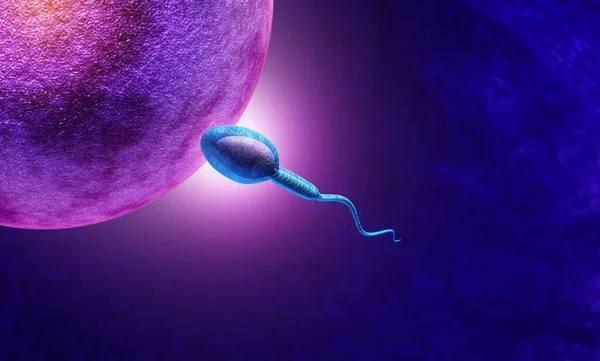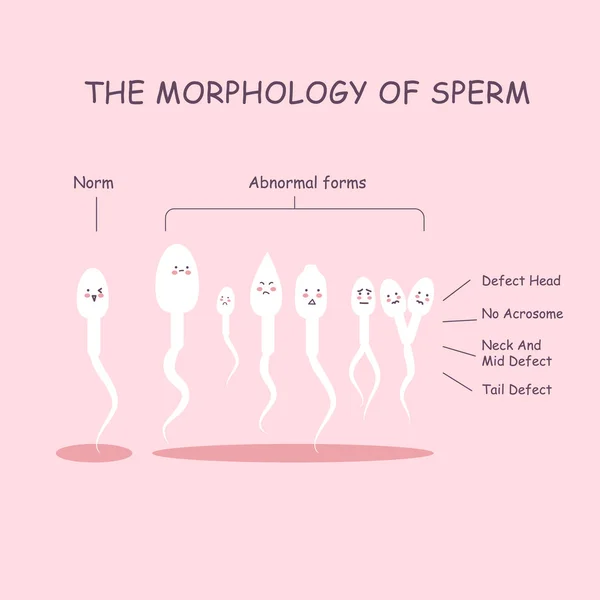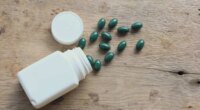Study Confirms Pesticides May Reduce Sperm Counts – A comprehensive study published in the journal Environmental Health Perspectives has shed light on the potential impact of pesticides on sperm counts, revealing a significant decline in sperm concentration globally. This research, which analyzed 25 studies from around the world, including 20 studies in a meta-analysis, involved 1,774 men from 21 different study populations. The study found that men with higher exposure to pesticides, particularly organophosphates and N-methyl carbamates, had significantly lower sperm concentration compared to those with the least exposure. Sperm concentration, which measures sperm per milliliter of semen, is a crucial indicator of sperm quality and is used to compare men across studies due to its adjustment for semen volume variability. The decline in sperm concentration, along with the total number of sperm swimming progressively in the semen, are considered more important measures of future fertility.

The study also highlighted the mechanisms through which these pesticides may affect sperm. Animal studies have suggested that these chemicals can interfere with sexual hormones, damage cells in the testes, and alter neurotransmitters in the brain that impact sperm production. This underscores the sensitivity of sperm to overall health, emphasizing the importance of being aware of pesticide exposure, especially for those planning to have a family and conceive children.
Beyond pesticides, researchers are exploring other factors that could contribute to the decline in sperm count, including obesity, poor diet, chronic disease, and exposure to environmental toxins such as pollution and PFAS. Interestingly, a study found that men who used their phones more than 20 times a day had a 21% higher risk for a low overall sperm count and a 30% higher risk for a low sperm concentration. This suggests that even modern lifestyle factors could play a role in sperm health.
How do pesticides affect sperm quality beyond just concentration?
Organophosphates and N-methyl carbamates are among the most widely used pesticides globally. Organophosphates are main components of nerve gas, herbicides, pesticides, and insecticides, and are also used in plastics and solvents. N-methyl carbamates, structurally and operationally similar to organophosphates, are used to make insecticides for controlling pests on various crops. Their widespread use in agriculture, homes, and lawns, as well as their availability for consumer purchase, means that organophosphate exposures have been demonstrated to be relatively widespread.
To mitigate the impact of pesticide exposure on sperm count, experts recommend choosing organic foods, which have little to no pesticide residue. If organic options are not available or too pricey, thorough washing of produce with water is advised. The Environmental Working Group provides a yearly list of nonorganic produce with the most and least pesticides, helping consumers make informed choices. Additionally, tips on washing produce, such as handwashing with warm water and soap, rinsing produce before peeling, and drying produce with a clean cloth, can further reduce pesticide levels.

The effects of these pesticides on sperm health are not limited to concentration but also include the disruption of sexual hormones, which are essential for sperm production and function. This disruption can lead to a decline in sperm count and concentration, which are critical indicators of male fertility. The impact on neurotransmitters in the brain further complicates the picture, as these chemical messengers play a role in the regulation of sperm production. This interference can lead to a decrease in the quality of sperm, affecting not just the quantity but also the overall health and viability of the sperm cells.
Moreover, the study highlights the importance of being aware of pesticide exposure in one’s environment and taking steps to minimize it. This includes adopting certain lifestyle changes, particularly dietary ones, to reduce pesticide exposure. For instance, choosing organic foods, that have little to no pesticide residue, is recommended. If organic options are not available or too pricey, thorough washing of produce with water is advised. The Environmental Working Group provides a yearly list of nonorganic produce with the most and least pesticides, helping consumers make informed choices.
In conclusion, pesticides affect sperm quality in multiple ways, including the disruption of sexual hormones, destruction of testicular cells, and alteration of neurotransmitters in the brain. These effects contribute to a decline in sperm count and concentration, underscoring the importance of being aware of pesticide exposure and taking steps to minimize it. The findings not only contribute to the ongoing debate over male fertility but also emphasize the broader implications of pesticide use on public health.
List of sperm-boosting foods
Here’s a list of foods that may help boost sperm count and improve sperm quality:
-
Oysters: Rich in zinc, which is essential for sperm production and motility.
-
Fatty fish: Like salmon, mackerel, and sardines, are good sources of omega-3 fatty acids, which are important for sperm health.
-
Dark chocolate: Contains antioxidants that may protect sperm from damage.
-
Walnuts: Rich in omega-3 fatty acids and vitamin E, which are beneficial for sperm health.
-
Fruits and vegetables: Particularly those rich in antioxidants, such as berries, spinach, and kale.
-
Eggs: A good source of protein, vitamin D, and zinc, all of which are important for sperm health.
-
Whole grains: Provide essential nutrients, including vitamin B9 (folate), which may help prevent sperm DNA damage.
-
Maca root: A Peruvian plant that has been traditionally used to improve fertility. Some studies suggest it may increase sperm count and motility.
-
Fenugreek: An herb that has been shown to increase testosterone levels and sperm count in some studies.
-
Ashwagandha: Another herb that may improve sperm count and motility.
It’s important to note that the evidence for the effectiveness of these foods is mixed, and more research is needed to confirm their benefits. However, incorporating these foods into a healthy diet may provide overall health benefits and potentially support sperm health.
Tips for improving sperm count and quality

Lifestyle factors:
-
Maintain a healthy weight: Obesity has been linked to lower sperm count and quality. Aim for a healthy body mass index (BMI) of between 18.5 and 24.9.
-
Eat a healthy diet: A balanced diet rich in fruits, vegetables, whole grains, nuts and lean protein can provide the nutrients your body needs to produce healthy sperm.
-
Limit exposure to toxins: Avoid exposure to pesticides, heavy metals, and other environmental toxins that can damage sperm.
-
Manage stress: Chronic stress can lower sperm count and quality. Find healthy ways to manage stress, such as exercise, yoga, or meditation.
-
Get enough sleep: Aim for 7-8 hours of sleep per night. Sleep deprivation can disrupt hormone production and sperm health.
-
Exercise regularly: Regular exercise can improve overall health and may also benefit sperm health.
-
Avoid smoking and excessive alcohol consumption: Smoking and excessive alcohol consumption can damage sperm.
Supplements:
-
Consider taking a multivitamin: A multivitamin can provide essential nutrients that may be beneficial for sperm health.
-
Take folic acid: Folic acid is important for preventing sperm DNA damage. Aim for 400 micrograms of folic acid per day.
-
Consider taking omega-3 fatty acids: Omega-3 fatty acids may improve sperm motility and morphology. Aim for 500-1,000 milligrams of omega-3 fatty acids per day.
-
Consider taking zinc: Zinc is essential for sperm production. Aim for 11 milligrams of zinc per day.
-
Consider taking vitamin C: Vitamin C is an antioxidant that may protect sperm from damage. Aim for 90 milligrams of vitamin C per day.
Other considerations:
-
Keep the testicles cool: The testicles need to be slightly cooler than a person’s core body temperature for optimal sperm production. Avoid wearing tight-fitting underwear or sitting for long periods of time.
-
Avoid hot tubs and saunas: Hot tubs and saunas can raise scrotal temperature and impair sperm production.
-
Get regular medical check-ups: Underlying medical conditions, such as infections or hormonal imbalances, can affect sperm count and quality. See your doctor for regular check-ups and to discuss any concerns you may have.
In conclusion, the study underscores the need for action to reduce insecticide exposure, especially for men planning to father children. It highlights the importance of being aware of pesticide exposure in one’s environment and taking steps to minimize it. The findings not only contribute to the ongoing debate over male fertility but also emphasize the broader implications of pesticide use on public health.
Don’t Miss | Can Snoring Increase Stroke Risk In Adults? Here’s What Experts Want You To Know










